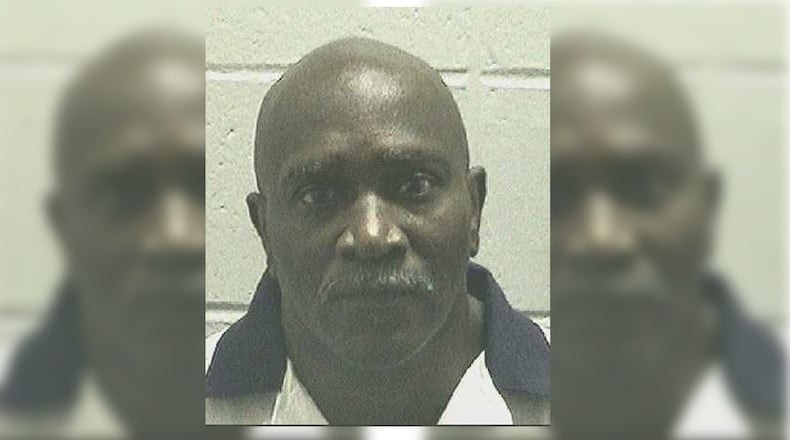Keith “Bo” Tharpe spent years on Georgia’s death row insisting a juror’s racist views had put him there.
Tharpe — who finished what he expected to be his last meal on Sept. 26, 2017, before the U.S. Supreme Court issued a stay of his execution — died late Friday at the Georgia Diagnostic and Classification Prison in Butts County. His death likely was due to complications from cancer, according to a news release from the Georgia Resource Center, which represented him in recent years as he attempted to appeal his death sentence. He was 61.
In 1991, Tharpe was sentenced to death for killing his sister-in-law, Jaquelin Freeman. Seven years later, juror Barney Gattie dropped several racially biased statements while being interviewed by Tharpe's lawyers, including calling Tharpe the n-word.
“After studying the Bible, I have wondered if black people even have souls, ” said Gattie, according to an affidavit he signed years after the trial.
Gattie also said Tharpe’s sister-in-law came from a family of “nice black folks.”
“If they had been the type Tharpe is, then picking between life and death for Tharpe wouldn’t have mattered so much,” Gattie said. “My feeling is, what would be the difference?”
Gattie, who was white, said he voted to sentence Tharpe to death because he “wasn’t in the ‘good’ black folks category.” However, Gattie later backed off that statement.
Gattie is now deceased.
» RELATED: 5 things to know about Georgia death row case with 'racist juror'
» RELATED: The faces of Georgia's death row
In a 6-3 decision in 2017, U.S. Supreme Court justices said they were concerned Gattie was racist and only voted for the death penalty because Tharpe was black, sending the case back to a lower court on appeal.
Still, a three-judge panel of the 11th U.S. Circuit Court of Appeals ruled unanimously against Tharpe's appeal, saying it could not retroactively apply a 2017 U.S. Supreme Court opinion allowing courts to consider evidence of racial animus by jurors.
The Georgia Department of Corrections has not yet responded to a media request to officially confirm the inmate's death.
Marcia Widder, one of Tharpe’s lawyers at the Georgia Resource Center, said the courts’ refusal to consider the impact of Gattie’s views “a stain on the judicial system” and calls for more effort to eliminate racism in the criminal court system.
About the Author
Keep Reading
The Latest
Featured




